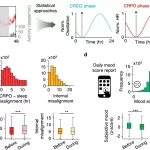July 27, 2024 — A breakthrough study led by Dr. Woong-Ki Kim at Tulane University reveals that an experimental cancer drug may offer a new avenue for clearing HIV from infected brain cells. Published in the journal Brain, the study highlights the drug’s potential in addressing one of the most challenging aspects of HIV treatment: its persistence in the brain.
The research, conducted at the Tulane National Primate Research Center, focused on the small molecule inhibitor BLZ945, which has previously been investigated for amyotrophic lateral sclerosis (ALS) and brain cancer. The study demonstrated that BLZ945 significantly reduced levels of Simian Immunodeficiency Virus (SIV) — the nonhuman primate counterpart of HIV — in the brain. This marks a crucial step forward in targeting HIV within the central nervous system.
Dr. Kim emphasized the significance of these findings, stating, “This represents an important step in addressing brain-related issues caused by HIV. Despite the effectiveness of current antiretroviral treatments, HIV continues to pose challenges, particularly in the brain.”
The difficulty in eradicating HIV from the brain is largely attributed to the blood-brain barrier, a protective shield that also impedes effective drug delivery. The virus often hides in long-lived immune cells known as macrophages, contributing to neurocognitive problems experienced by nearly half of individuals living with HIV.
In the study, BLZ945 was used to block a specific receptor in HIV-infected macrophages, leading to a dramatic 95-99% reduction in viral DNA in the brain. Importantly, this reduction was achieved without harming microglia, which are crucial for brain health, or causing liver toxicity.
The experimental treatment was tested on three groups of primates: an untreated control group and two groups receiving either low or high doses of the drug for 30 days. The high-dose group showed a notable decrease in HIV receptor sites.
The next phase of research will involve combining this novel therapy with existing antiretroviral treatments to assess its potential in a broader HIV eradication strategy.
If successful, this innovative approach could revolutionize HIV treatment and significantly enhance the quality of life for individuals affected by the virus.











